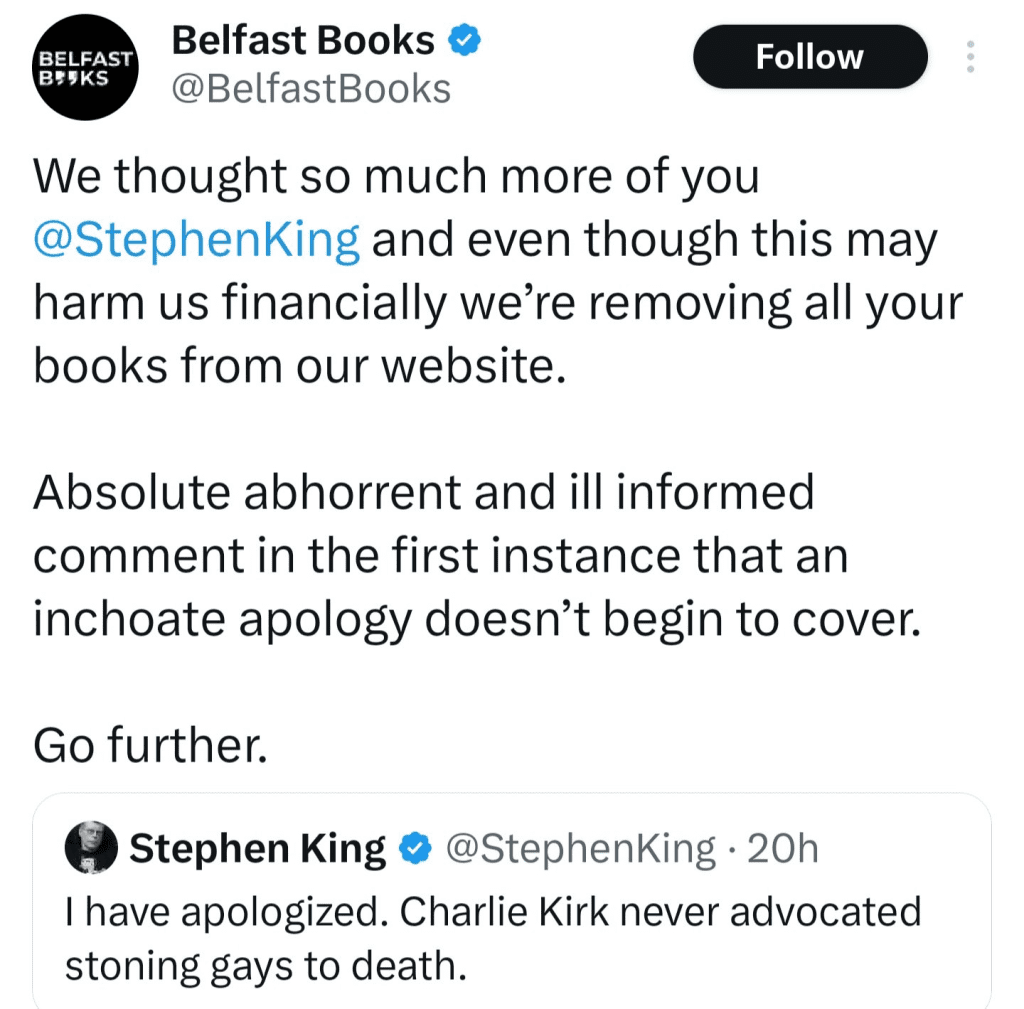Belfast Book Company Removes All Stephen King Books After Author’s False Claim About Charlie Kirk
Stephen King is no stranger to controversy, but the latest backlash has become one of the most surprising chapters in his long career. A well-known book company in Belfast, Northern Ireland, has announced that it is removing every single Stephen King title from its shelves and website after the author shared a false claim about Charlie Kirk. The claim suggested that Kirk advocated for “stoning” gay people, something that has been proven to be untrue. Despite King’s attempt to soften his words afterward, the apology was described by the Belfast store as “inchoate” and far from enough to repair the damage.

In their statement, the book company explained that it was not an easy decision. They acknowledged that removing King’s works could bring financial loss, but insisted that standing by principle mattered more. “We thought so much more of you, Stephen King,” their message read, adding that his words were “abhorrent and ill-informed.” They went further, saying that keeping his titles in stock would contradict their values, especially when the author’s comments had spread misinformation about someone else.
For a store that depends on bestselling authors to keep sales steady, this was a striking move. King is one of the most popular writers in the world, with decades of success and countless titles that readers continue to buy. To pull his books is to risk losing loyal customers who might not agree with the decision, but it also shows how strong the reaction to his words has been.

The controversy stems from the speed at which online comments travel. In today’s climate, even one post from a major figure can carry massive weight. When it is inaccurate, the fallout can be swift and unforgiving. King’s criticism of Kirk may have been meant as sharp commentary, but the fact that it was based on something false gave it an edge that backfired. Readers expect honesty, and when a writer of King’s stature is seen to spread misinformation, the disappointment runs deep.
The Belfast company’s move has now fueled a larger conversation about accountability. Should an artist’s work be punished for their words, or should the two be kept separate? Opinions are divided. Some argue that readers can enjoy King’s novels without supporting his political commentary, while others say that the platforms and profits authors enjoy come with responsibility. What is clear is that the store’s decision has already made waves, sparking both praise and criticism online.
For Charlie Kirk and his supporters, the removal of King’s books is seen as a small form of justice, a recognition that false claims have consequences. For King, it is another reminder that in the age of instant reactions, even a global brand built over decades can take damage overnight. The debate will continue, but one thing is certain: words still matter, and sometimes they carry a price no bestseller list can cover.



